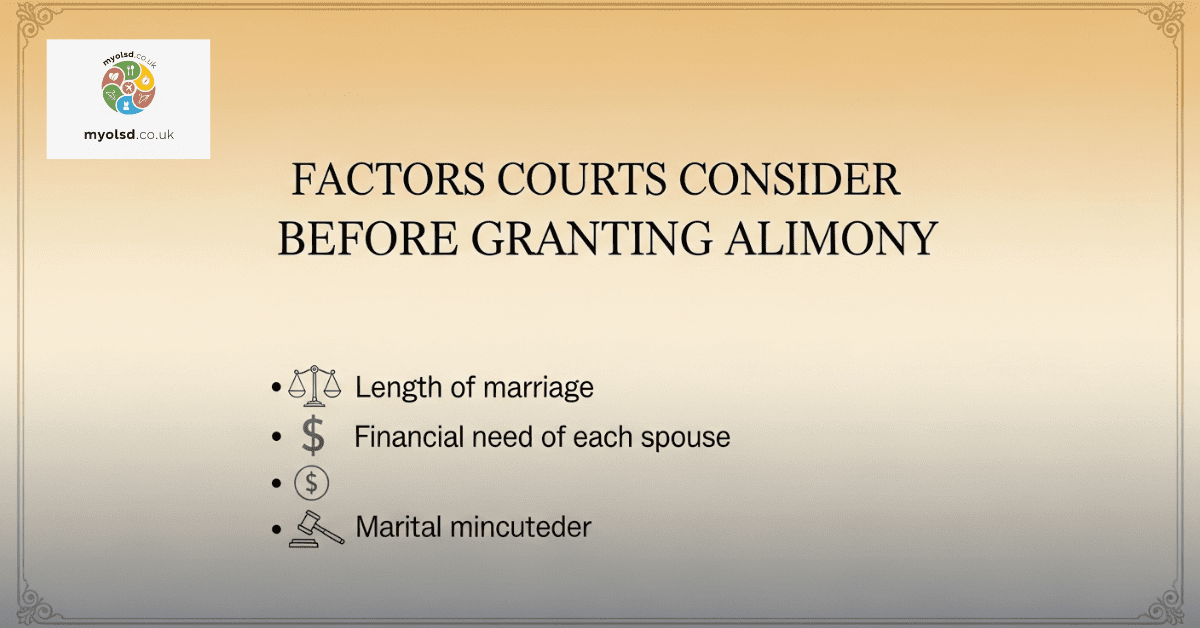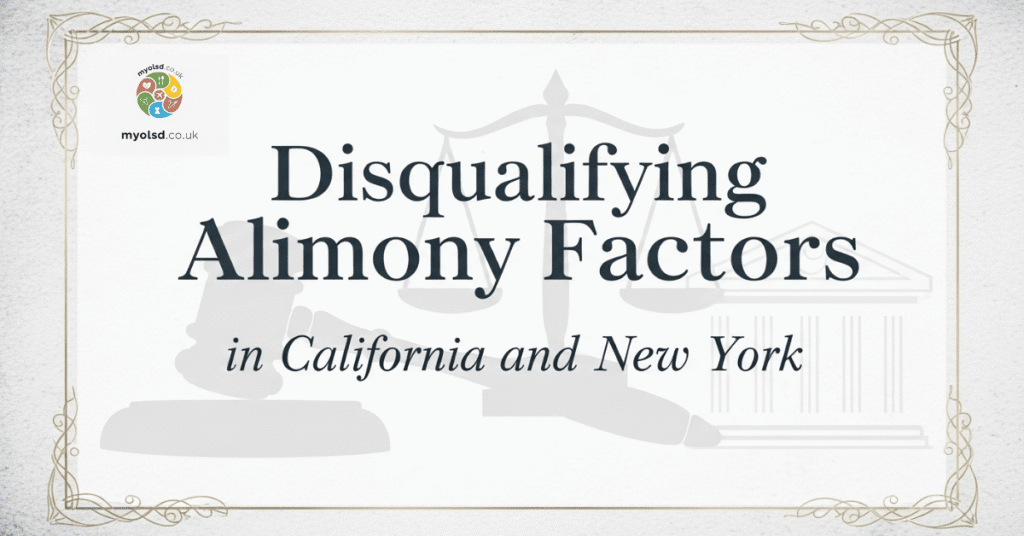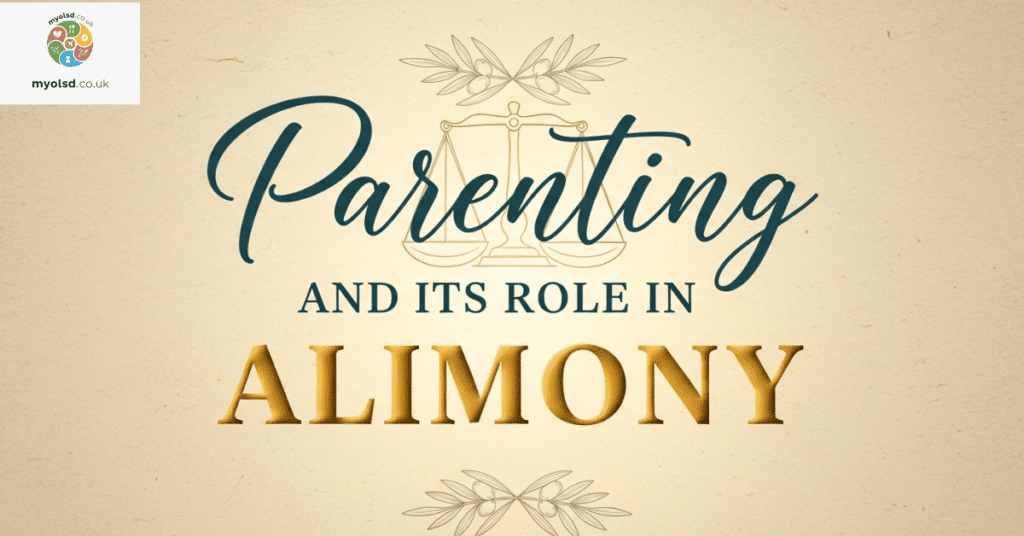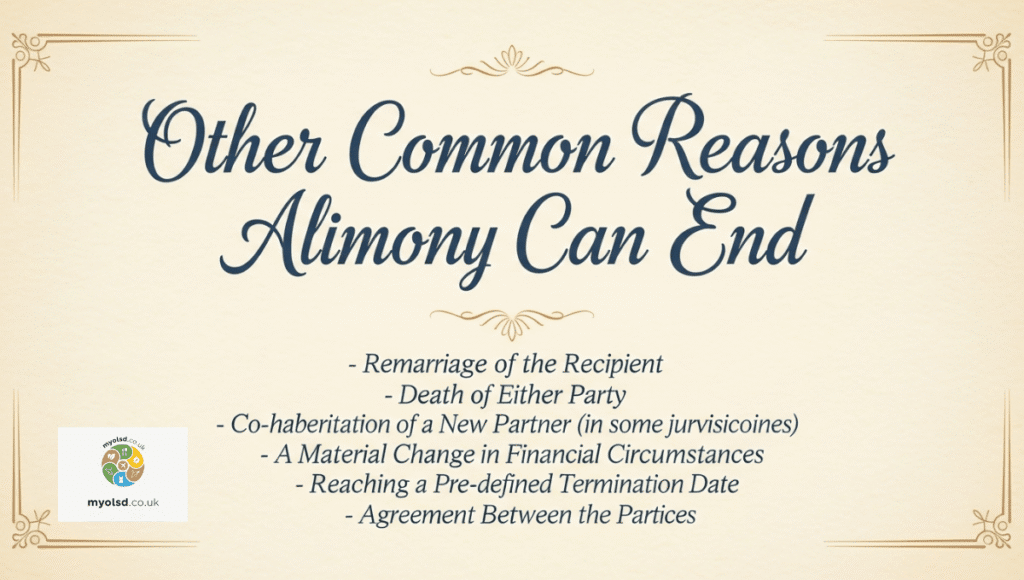Sometimes, life after divorce doesn’t go the way we expect. You might be wondering, What Disqualifies You from Alimony, especially if you’re worried about your financial stability or fairness in the settlement. It can feel overwhelming when you don’t fully understand the rules that affect such an important part of your future.
In this post, we’ll break down What Disqualifies You from Alimony in clear and simple terms so you know exactly where you stand. You’ll learn the common factors courts consider, mistakes to avoid, and situations where alimony may not apply. By the end, you’ll have a solid understanding of What Disqualifies You from Alimony and feel more confident about your next steps.
Alimony, often called spousal support or maintenance, is financial assistance that one spouse may pay the other after a divorce. Its main purpose is fairness: to ensure that a dependent spouse can maintain a lifestyle close to what they had during marriage. Courts typically award it when one spouse earns significantly less or has sacrificed career opportunities to support the home or children.
For example, if one spouse stayed home to raise kids while the other built a successful career, alimony helps balance financial stability after separation. It is not designed as punishment it is a way to reduce economic inequality between the two partners.
Factors Courts Consider Before Granting Alimony

Courts don’t award alimony automatically. They carefully examine the couple’s financial and personal circumstances. Some common factors include:
- Income gap: A large difference in earnings between spouses.
- Length of marriage: Longer marriages often result in stronger claims.
- Age and health: If one partner is too old or unwell to earn.
- Contributions: Such as raising children or supporting a spouse’s career.
- Future earning capacity: The likelihood of becoming self-sufficient.
- Standard of living: Lifestyle enjoyed during marriage.
The goal is to ensure fairness without making one spouse permanently dependent.
When Alimony Might Not Be Awarded

Judges first evaluate whether alimony is even necessary. If both spouses are financially independent and capable of sustaining themselves, support may not be granted at all. For instance, if both partners have stable jobs and good income, the court may deny alimony.
On the other hand, if one spouse has little work experience, stayed home for years, or sacrificed their career, alimony becomes more likely. However, the court can limit the duration to encourage the dependent spouse to rebuild financial stability.
Read more Article: 10 of the Best Proposal Photoshoot
How Courts Decide the Amount and Duration

When alimony is approved, courts determine the payment size and time period. They look at:
- The needs of the dependent spouse.
- The ability of the paying spouse to provide.
- The standard of living during the marriage.
- The length of the marriage.
For short-term marriages, alimony is often temporary, designed to help transition into independence. For long-term marriages, it may last much longer sometimes until retirement.
Disqualifying Alimony Factors in California and New York

Since alimony laws vary by state, let’s look at two common examples:
California
In California, alimony may be reduced or terminated if the receiving spouse:
- Remarries or enters a new domestic partnership.
- Lives with a partner in a relationship similar to marriage.
- Becomes financially independent through a job or inheritance.
- Violates a prenuptial agreement that limits support.
New York

In New York, alimony (also called maintenance) may end if the dependent spouse:
- Gets remarried.
- Cohabitates with a partner in a financially supportive relationship.
- Becomes self-sufficient and no longer needs assistance.
- Is found guilty of fraud or dishonesty during the divorce settlement.
Parenting and Its Role in Alimony

Children play a major role in alimony decisions. If one spouse stayed home or reduced working hours to raise children, that sacrifice is taken into account. The court recognizes that childcare duties limit career growth and earning potential. Alimony ensures this parent does not face financial hardship after separation.
The Role of Prenuptial Agreements
Prenuptial agreements (prenups) can greatly impact alimony. Some couples agree in advance to limit or eliminate spousal support. However, for prenups to be valid, both parties must have independent legal advice.
For example, in Nevada, a prenup may be challenged if one spouse didn’t fully understand it or lacked proper legal guidance. If one partner speaks another language, courts may require a translated version to ensure fairness.
Other Common Reasons Alimony Can End

Beyond remarriage or financial independence, there are other circumstances that may disqualify a spouse from alimony, such as:
- Fraud: Lying about income or hiding assets.
- Criminal activity: In some cases, misconduct can impact support.
- Failure to seek employment: If the dependent spouse refuses to work despite being able to.
Courts want to encourage fairness, not dependency.
The Bottom Line

Alimony is meant to provide financial support during a difficult transition, not as a lifetime guarantee. Factors such as remarriage, cohabitation, financial independence, or dishonesty can disqualify someone from receiving it. Since every divorce is unique, the best way to protect your rights is to consult a family law attorney who understands your state’s laws.
FAQs
1. What is the law of alimony in Pakistan?
In Pakistan, alimony is governed by Islamic law and the Family Courts Act. A wife is entitled to maintenance, which includes food, shelter, and basic expenses after divorce.
2. What is the minimum length of marriage for alimony?
There is no universal rule, but longer marriages (usually 10+ years) increase the likelihood and duration of alimony.
3. What if a husband refuses to pay alimony?
If a husband refuses, the wife can approach the family court to enforce her right to maintenance.
4. Does cheating affect alimony?
In some states, marital misconduct such as adultery may reduce or eliminate alimony, though this varies by jurisdiction.
5. Can alimony be modified later?
Yes. If circumstances change, such as job loss or illness, either spouse can request the court to review and adjust the alimony order.
6. Is alimony permanent?
Usually no. Most alimony is temporary and designed to help the dependent spouse transition into financial independence.



Good 😊